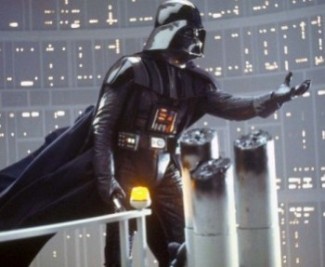Kinds of Nouns: Proper Nouns
Among the 8 parts of speech, the simplest one and the easiest to remember is probably the noun. There are many kinds of nouns, but in this article, one of the most common ones will be discussed—the proper noun.
Definition of Proper Nouns
Basically, proper nouns refer to words which are used to name a specific person, place, animal, thing, or event. Aside from that, this type of noun always starts with a capital letter and is usually (but not always) in singular form.
Explanation of Proper Nouns
Based on the definition above, it can be said that proper nouns have two unique features: a) it names a specific or a “one-of-a-kind” person, place, animal, event, or thing, and b) it always begins with a capital letter, regardless of its location in the sentence.
The proper noun can be considered as the opposite of the common noun, which is used to give generic names to people, animals, things, places, or events. Lastly, you should remember that there is always a common noun equivalent for every proper noun, but not all common nouns have proper noun counterparts.
Examples of Proper Nouns
Darth Vader
Great Pyramid of Giza
The underlined words in the sample sentences below are some examples of proper nouns.
- Tom Hanks is one of my favorite actors.
- Ross and Rachel ended up together.
- It was a rainy Sunday when we first met.
- Jonathan and Raphael went to Mall of Asia to watch the event.
- As a child, he used to play Pokemon on his Gameboy Advance.
- My mom made these awesome Nutella cupcakes.
- V for Vendetta is a really cool movie for me.
- Carol wants to buy a Mini Cooper.
- Abbey Road is located in London.
- He named his sons after the Beatles.
Examples of Proper Nouns in Literature
Below are some examples of proper nouns (underlined words) used in famous literary pieces:
- “Once she had loved Prince Joffrey with all her heart, and admired and trusted her his mother, the queen. They had repaid that love and trust with her father’s head. Sansa would never make that mistake again.” – George R.R. Martin, A Clash of Kings
- “It is my belief, Watson, founded upon my experience, that the lowest and vilest alleys in London do not present a more dreadful record of sin than does the smiling and beautiful countryside.” – Sir Arthur Conan Doyle, The Copper Beeches“
- I asked if Tyler was an artist. Tyler shrugged…What Tyler had created was the shadow of a giant hand. . . he said how at exactly four-thirty the hand was perfect.” – Chuck Palahniuk, Fight Club
- “Your father, Jo. He never loses patience, never doubts or complains, but always hopes, and works and waits so cheerfully that one is ashamed to do otherwise before him.” – Louisa May Alcott, Little Women
- “Remember, if the time should come when you have to make a choice between what is right and what is easy, remember what happened to a boy who was good, and kind, and brave, because he strayed across the path of Lord Voldemort. Remember Cedric Diggory.” – J.K Rowling, Harry Potter and the Goblet of Fire
- “The title was but a courtesy due him as a council member; Varys was lord of nothing but the spiderweb, the master of none but his whisperers.” – George R.R. Martin, Game of Thrones
- “Pilkington, at Mombasa, had produced individuals who were sexually mature at four and full grown at six and a half.” – Aldous Huxley, Brave New World
- “But courage, child: we are all between the paws of the true Aslan.” – C.S Lewis, The Last Battle
- “Men at some time are masters of their fates. The fault, dear Brutus, is not in our stars, but in ourselves, that we are underlings.” – William Shakespeare, Julius Caesar
- “Every once in a very long while, Lord Tywin Lannister would actually threaten to smile; he never did, but the threat alone was terrible to behold.” – George R.R. Martin, A Storm of Swords
Function of Proper Nouns
While the common noun provides a generic name for a person, an animal, a thing, a place, or an event, a proper noun gets more specific. Simply put, its main function is to state the actual name of a specific person, an animal, a thing, a place, or an event, so that the audience will easily know which one are you talking about.


